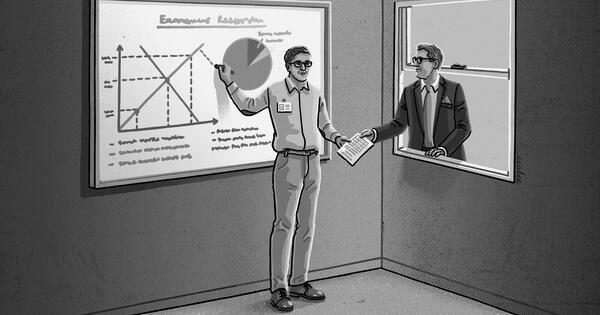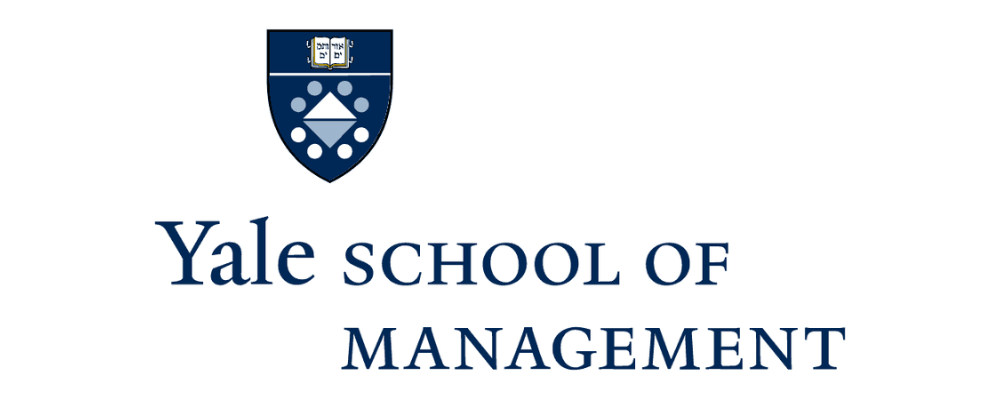
Let’s say you see an interesting headline about new research, suggesting that a ride-share service reduced traffic jams in cities. You click the link, scroll down the article, and then discover that the study authors based their results on private data from the ride-share company itself. How much would that disclosure dampen your trust in the finding?
Quite a bit, according to a new study co-authored by Prof. John Barrios. On average, the use of private data decreased people’s trust in economic results by one-fifth. And that’s a problem for economists, who often rely on these data sets to fuel their studies.
“That’s the lifeblood of modern economic research,” Barrios says. “But it also creates a tension: the very data that let us answer new questions can make our work seem less independent.” His team’s study suggested that other conflicts, such as accepting consulting fees from companies and ideological biases, also substantially lowered trust.
When conflicts undermine credibility, studies lose some of their power to shape public policy decisions. “We engage in creating knowledge, and that marketplace of ideas runs on the currency of trust,” he says. “Once that trust erodes, so too does our research in impacting the world around us.”
Barrios acknowledges that private data sets offer benefits too, giving researchers the ability to test ideas that would otherwise be out of reach. “We’re not saying private data should be off-limits,” he says. “But we have to recognize the cost. When access comes with strings attached, people start questioning whose story the data are telling.”
Hey, I’m AInsights
Ask me questions about the article and its underlying research. Let’s chat!
Ask Insights powered by AI …
Conflicts of interest in medicine have been well-studied—for instance, whether results are swayed when research is funded by pharmaceutical companies. But researchers haven’t looked as closely at the social sciences, where conflicts can be more subtle. Barrios investigated in collaboration with Filippo Lancieri of Georgetown University Law Center; Joshua Levy of the University of Southern California; Shashank Singh of the University of California, Berkeley; Tommaso Valletti of Imperial College London; and Luigi Zingales at the University of Chicago Booth School of Business.
The team surveyed 1,246 economists and a representative sample of 1,280 Americans. Participants first read short summaries of economic research findings and rated how much they believed the results. Then they saw a disclosure revealing a potential conflict of interest by the author and rated their trust again.
Trust fell by an average of 30% after the disclosure, even though participants were told that the study was published in a respected peer-reviewed journal and used sound methods. Despite those safeguards, “once a reader learns that there’s a conflict, their trust in the research diminishes,” Barrios says.
Participants also drew sharp distinctions between public and private data. For instance, in one vignette, a study reporting on the benefits and costs of introducing ride-sharing to a city earned more trust, by about 4% if the data came from public sources. But if the data came from the ride-sharing firm itself, trust fell by 20%.
That skepticism deepened when corporate control over results entered the picture. In a separate scenario about electronic payment platforms, if the credit card company had waived its right to review the paper, trust rose by 12%. But when the company retained review rights, trust plunged by 52%.
Other potential conflicts produced similar credibility penalties. Financial ties, such as receiving grants or consulting fees from firms, reduced trust by an average of 27%—and the dollar amount didn’t seem to matter much. A researcher who accepted a $10,000 fee was distrusted almost as much as one who took $1 million.
Meanwhile, information about an author’s political affiliation reduced trust by about 17% on average. But the reaction wasn’t symmetrical: when a Republican researcher found results consistent with conservative priors, trust dropped sharply; when a Democrat produced similar findings, trust declined even if the results leaned the other way. Among economists, trust actually rose when a Republican reported a liberal-leaning result, suggesting that readers view cross-ideological findings as more credible.
A conflicted paper is valued at about 60% of a clean one. In the marketplace of ideas, that’s a steep markdown.
In addition to gathering the survey data, Barrios’ team developed a more precise way to measure how much conflicts of interest affect the perceived value of research—that is, how much a study can shift people’s beliefs. They called this measure the “conflict of interest discount.”
The discount went beyond the simple decline in trust after the conflicts were revealed. After all, “people don’t come to a paper as blank slates,” Barrios explains. “They already have a sense that some fields are more conflicted than others, and that shapes how much they believe a result even before they read it.” If readers assumed by default that a substantial fraction of studies were conflicted, that expectation would lower the baseline credibility of any results in that area. When Barrios and his colleagues accounted for that baseline level of distrust, as well as the additional weakening of trust from reading the specific disclosure, the average overall discount was 39%. In other words, Barrios says, “A conflicted paper is valued at about 60% of a clean one. In the marketplace of ideas, that’s a steep markdown.”
To address this credibility gap, Barrios and his co-authors propose several practical reforms. Journals, they argue, should enforce stricter publishing standards—starting with data access. “If a company keeps the right to review or approve a paper before it’s published, that’s not an independent finding,” Barrios says. “Editors should draw a clear line.”
And researchers should recognize that when some studies in a field are conflicted, the reputation of independent economists’ work suffers too. Their research “is also being tainted,” he says. To level the playing field, he suggests that conflicted papers should be given less weight in settings such as legal proceedings and academic promotions.
Barrios emphasizes that most researchers using private data do so in good faith. However, they might avoid pursuing certain questions if the answers are likely to be unfavorable to the firm, out of a fear that the company will withdraw data access. “If you know a negative result might get your data access cut off, you start avoiding the questions that could close the tap,” he says.
“Economists, of all people, should recognize that logic,” Barrios says. “We spend our careers studying how incentives shape behavior, so we shouldn’t be surprised when those same forces shape ours. It’s time for the profession to look in the mirror.”
“The Yale School of Management is the graduate business school of Yale University, a private research university in New Haven, Connecticut.”
Please visit the firm link to site



